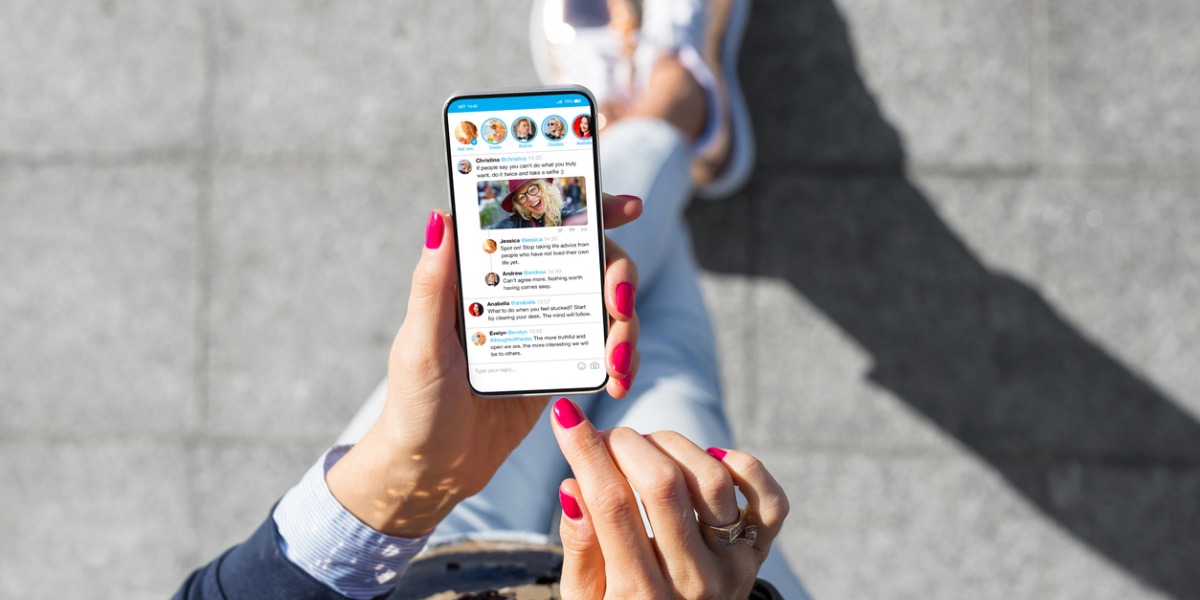The impact of social media on mental health is a significant concern for everyone. From parents, to teens, to policymakers and tech companies, it’s an issue we all need to learn about an understand – even officials at the highest level of government. In May 2023, the Surgeon General of the United States issued an advisory with the following title:
“Social Media and Youth Mental Health”
For the record, the Surgeon General issues a Surgeon General’s Advisory (SGA) when an urgent public health issue threatens the health and wellbeing of the general public. Most SGAs outline the problem, discuss how it developed, list the potential negative consequences, and then offer recommendations about how citizens, policymakers, and others can address the urgent public health issue described in the SGA.
As the title suggests, this new advisory is about the impact of social media on youth mental health, with a focus on the risks presented to the heaviest users: teenagers.
The relationship between social media and youth mental health made headlines a former data scientist from Facebook testified as a whistleblower before Congress. During the testimony, the whistleblower revealed the following information:
- Facebook hides research on harms associated with social media from the public
- A leaked study that showed suicidal thoughts increased among a group of teen girls in the U.K. after starting using Instagram
- A leaked study that showed 17% of teen girls reported using Instagram exacerbated their eating disorders
- One additional study that indicated 32% of teen girls said that when they feel bad about their bodies, Instagram made them feel worse
The testimony made headlines because it was the first time someone with direct, inside knowledge – i.e. a social media employee involved in research and analytics – discussed internal research in public. The whistleblower – Frances Haugen – arrived at this conclusion after her years working for Facebook:
“It is clear that Facebook prioritizes profit over the well-being of children and all users.”
However, one thing most people don’t know is that the new knowledge that arose from the hearing was not about the impact on teen mental health, but rather, that statement itself: company officials knew about the potential of harm to specific groups of people, but did not act to protect those groups from the potential harm.
We’ll explain.
Teen Girls and Social Media: The Perfect Storm
First of all, we should say that even that heading is misleading: for some teen girls, social media is a perfect storm – but not for all teen girls.
That’s the research we knew about before the whistleblower hearing. As far back as 2015, research conducted by Common Sense Media reported the negative impact of social media on specific groups of teens:
- Teenage females between age 10 and 14
- Teenage boys and girls between age 13 and 18 with a mental health disorder
- Teenagers who have been bullied at school or online
- Teen boys or girls with low self-image or low self-esteem
- Teenagers prone to negative self-talk
In addition, they identified four types of social media use that increase risk of harm:
- Comparing Social Status
- When teens compare themselves with teens they think have higher social status, risk of anxiety and depression increases.
- Comparing Appearance
- When teens compare themselves with teens they think are more attractive, risk of anxiety and depression increases.
- Negative Interactions
- Teenagers who post updates that lead to negative comments or reactions are at increased risk of anxiety and depression
- High Level of Use
- Teenagers who report over 2 hours of social media use per day, or say they check their social apps more than three times a day, are at increased risk of anxiety, depression, and other psychological distress
Across all four of these user types, researchers indicated that teenage girls who meet these profiles are at increased risk of mental health problems, compared to boys. That’s why the whistleblower testimony before Congress was important not for the information she shared about the risks of social media – which were previously documented – but for the fact she revealed Facebook/Instagram knew about these risks without taking any discernable actions to mitigate them.
The Surgeon General’s Advisory
Before the arrival of COVID-19, research showed an increase in mental health problems among youth and teens. Here’s the data that led the Surgeon General to release another SGA on youth mental health in 2021:
- Between 2005 and 2014:
- Depression among girls increased 4%
- From 2005 to 2014:
- Depression among boys 14-17 increased by 1.2%
- In 2015:
- Suicide became the second leading cause of death for people between age 10 and 24
- From 2007 to 2017:
- Suicide increased 56% among people between age 10 and 24
- From 1999 to 2017:
- Rates of suicide increased 400% among girls between age 10 and 14
- In 2018:
- 1,400 girls died by suicide
- 5,000 boys died by suicide
- Between 2009 to 2019:
- The number teens engaging in suicidal ideation increased by 36%
- The number of teens who made a suicide plan increased by 44%
That data had an impact, and caused us all to reconsider the state of teen mental health in the U.S. At the time, many people pointed toward social media as the primary culprit. That’s a logical position to take, since the increase in teen mental health issues mirrored the advent and increase in social media use among teens around the country.
However, no data established any clear causation between social media and mental health. The data showed what we shared above: increased risk for certain types of social media users – especially younger teen girls who engage in heavy use and engage in negative comparing. In fact, at that point, most teens indicated that conflict with parents over time spent on social media caused more psychological distress than social media itself.
That was then. Now, a new wave of research fills in the gaps, and makes a compelling case for the statement “We don’t know what levels of social media use can be considered safe for youth or teenagers.”
New Data Around Social Media: Impact on Mental Health
- A study of 6,595 adolescents aged 12–15 showed adolescents who spend 3 hours per day on social media have twice the risk of experiencing symptoms of depression and anxiety
- Researcher studied the rollout of a new social media platform on a college campus and observed:
- 9% increase in depressive symptoms
- 12% increase in symptoms of anxiety
- A study on college-aged youth showed that restricting social media use to 30 minutes daily for three weeks reduce the severity of depressive symptoms
- A study on young adults who deactivated their social media accounts for a month reported improved:
- Happiness
- Life satisfaction
- Depression
- Anxiety
- A study on over 10,000 teens showed heavy social media use predicted:
- Poor sleep
- Experiencing online harassment
- Poor body image
- Low self-esteem
That’s compelling data. We’re especially interested in reports that cutting back on social media improves quality of life. That’s what we really want to discuss next: how adults can use the information in the Surgeon General’s Advisory to protect themselves from the negative consequences of social media use.
Adults and Social Media: Protect Yourself, Too
The SGA has advice for policymakers, technology companies, and parents about how to mitigate the potential harm caused by social media. We think the advice for teens applies almost equally to adults. While teens scroll through social media and news feeds for different reasons than adults, adults spend significant time engaging in what we call doomscrolling. We keep checking our feeds for the latest news on social topics, political topics, and more.
And let’s face it: doomscrolling can ruin your day and make you angry, anxious, and sad all at once. We have a practical question for all adults reading this:
How can that be good for us?
The answer is simple: it just can’t be good for us. That’s why we think the latest SGA should apply to adults as well as teens. The SGA indicates the average teen spends about three and a half hours a day on social media, and reports spending more than three hours a day is harmful to mental health. Other sources show the average adult spend two and a half hours a day on social media.
We have another question:
Is that good for us?
We’ll share basic tips to help keep our social media use within reasonable limits that don’t impact our mental health. We’ve adapted these tips from various sources, including the SGA. Keep in mind that these tips were created for teens, but we think they’re good for adults, too.
Social Media Use: Five Tips for Wellbeing
- Disable Push Notifications. Let’s be real: you don’t to hear a cute noise or see a blinking light every time someone likes or comments on one of your posts.
- Reduce Your Use. Limit social media use to under two hours per day.
- Assess Your Social Media Use. Be realistic, and consider whether you use social media to compare your appearance to others or compare your social status or material possessions to others. That’s called negative comparing, and it increases your risk of depression and anxiety. Do not use social media to compare yourself to others. Also, assess how much you use social media to doomscroll – and stop doing that.
- Put the Phone or Tablet Away at Bedtime. Basic sleep hygiene is basic mental health hygiene. The experts say to turn off screens at least 20 minutes before bedtime. We suggest turning off screens an hour before bed, and avoiding scrolling through social media apps while in bed.
- Don’t Feed the Trolls. If you spend significant time arguing with people about politics or social issues on social media, we advise you to rethink that behavior. It’s rarely helpful, almost never changes the other person’s mind, and probably elevates your emotions in ways that may not be helpful to your overall peace of mind.
To close this article, we’ll circle back to a fact we shared above: the average adult spends two and a half hours a day on social media. To answer the question we posed immediately after we shared that, we encourage everyone to try an experiment:
Try a full weekend without social media, and see how it affects your emotions. If it makes you feel better, then consider reducing your social media use during the week.
We’re not suggesting you give up social media altogether, because it’s a great way to keep up with friends, family, and, of course, funny memes. However, if you’ve felt less than yourself lately, and you have a habit of doomscrolling, give this a try: you might be surprised at what you learn.


 Gianna Melendez
Gianna Melendez Jodie Dahl, CpHT
Jodie Dahl, CpHT